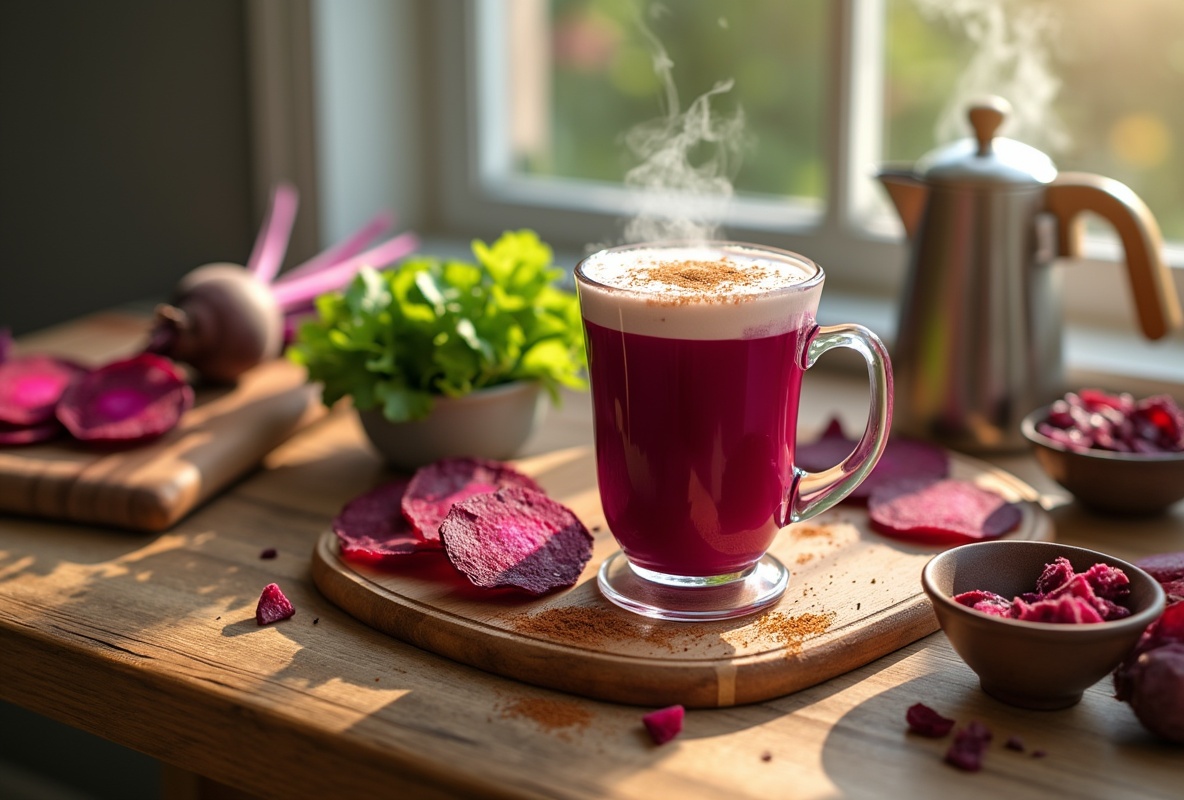Discovering the Power of Beetroots
When I first explored the world of beetroot benefits and drawbacks, I was amazed by how this vibrant root offers so much more than just color to our plates. Rich in nutrients and renowned for health-boosting properties, beetroots have made quite the name for themselves in nutrition circles. However, like many nutritious foods, they come with a few caveats worth considering. From aiding in lowering blood pressure because of their nitrate content to the potential issue of oxalates, the balance between advantage and caution becomes crucial. Let’s explore this fascinating root and what it truly offers.
Key Health Benefits of Beetroot You Need to Know
When exploring beetroot benefits and drawbacks, it’s hard to dismiss the incredible advantages this vibrant root offers. Personally, I’ve found that incorporating beetroot into my meals adds a nutrient-rich punch, thanks to its high levels of essential vitamins and minerals. One of beetroot’s standout benefits is its natural ability to improve athletic performance. This is because beetroots are rich in dietary nitrates, which can enhance oxygen usage and increase stamina during exercise. Additionally, beetroot juice is a fantastic source of antioxidants, which help fight off free radicals and protect our cells from damage. I also love how beetroots support heart health by potentially lowering blood pressure, thanks in part to their potassium content. For more heart-friendly options, consider pairing beets with other vegetables like spinach to amplify their nutrient potential.
Though beetroots are naturally sweet, they have a low-calorie count, making them a guilt-free addition to any diet. However, while beetroots offer these valuable health benefits, it’s essential to enjoy them as part of a balanced diet to truly maximize their potential without encountering any issues.
Potential Drawbacks of Consuming Beetroot
When we talk about Beetroot Benefits and Drawbacks, it’s essential to consider both the positives and the negatives. Although beetroots are packed with nutrients, there can be some downsides to eating them. For instance, they are high in oxalates, which might contribute to kidney stone formation in susceptible individuals. Moreover, beetroots have a natural pigment called betacyanin, which can cause beeturia—a harmless condition where your urine turns pink or red, potentially alarming if unexpected. Some people may also experience bloating or digestive discomfort due to high fiber intake. High-fiber vegetables like beets can pair well with low-fiber alternatives, such as sweet potatoes, to ease digestion without losing the nutritional value.
It’s worth noting that beetroot’s sugar content is higher than other vegetables, impacting blood sugar levels, especially for those monitoring their intake. Because of these reasons, it’s crucial to consume beetroots in moderation, blending them with other foods for a balanced diet. So, knowing these aspects not only ensures you enjoy the health benefits of beetroot but also safely manages any potential issues.
Nutritional Breakdown: What’s Inside a Beetroot?
When exploring beetroot benefits and drawbacks, it’s essential to understand what makes up this vibrant root vegetable. Beetroots are a nutritional powerhouse packed with a variety of vitamins and minerals. They contain significant amounts of vitamin C, folate, and potassium, which contribute to their health-boosting properties. Dietary fiber, naturally present in beetroots, aids digestion and maintains a healthy gut. For another gut-friendly option, you can explore recipes featuring cauliflower to expand your nutrient variety.
Moreover, beets are rich in nitrates, which can enhance physical performance and lower blood pressure. They contain betalains, natural pigments with antioxidant and anti-inflammatory effects. Because of these compounds, beetroots contribute to overall wellness in diverse ways. A typical serving offers not just nutrients but also a subtle sweetness that makes it versatile in various dishes. In addition, the high folate content supports cell growth and may prevent birth defects, making it especially beneficial for pregnant women. With this rich nutritional profile, incorporating beetroot into your diet seems like a no-brainer. Now, let’s delve deeper into how you can maximize these wonderful health benefits.
How to Maximize Beetroot’s Health Benefits
To truly harness the power of beetroot, consider incorporating it into your diet in creative ways. Start by adding fresh beet juice to your daily routine, which can enhance blood flow and lower blood pressure. For a delightful twist, try roasting beetroots, which not only intensifies their natural sweetness but also retains their essential nutrients. Pairing beetroot with a source of healthy fat, like avocado, improves the absorption of fat-soluble vitamins. Including beetroot greens in salads or smoothies can boost your intake of antioxidants and fiber. For broader plant-based inspiration, check out ideas for vegan cheese ingredients.
Moreover, consuming this vibrant root with foods rich in vitamin C, such as citrus fruits, enhances iron absorption, making it a nutritional powerhouse. However, remember to balance your diet with other vegetables to avoid potential digestive issues. That way, you’re not only embracing the beetroot benefits and drawbacks but optimizing your well-being. Now, let’s dive into alternatives and complements that can further enrich your dietary experience.
When to Consider Caution with Beetroot Consumption
While enjoying the Beetroot Benefits and Drawbacks in your diet, it’s crucial to understand when to exercise caution. For instance, beetroot contains oxalates, which might contribute to kidney stone formation in susceptible individuals. Individuals on blood pressure medication should also be aware because beetroot can lower blood pressure. It’s wise to consult with a healthcare provider if you have hypotension or are at risk of low blood pressure. Moreover, excessive beetroot consumption can lead to beeturia, which is harmless but causes red-tinted urine.
For those with sensitive stomachs, the fiber in beetroots might cause digestive discomfort. Therefore, it’s best to introduce beetroot gradually, ensuring your body adapts well. If you’re prone to allergies, monitor any adverse reactions, as beetroot allergies, although rare, can occur. By staying mindful of these potential concerns, you can safely enjoy the numerous health benefits without the drawbacks. For healthy alternatives to meet dietary needs, explore creative ways to use lentils as a substitute for variety.
Exploring Alternatives and Complements to Beetroot in Your Diet
Exploring alternatives to beetroot can diversify your diet while retaining similar health advantages. For example, sweet potatoes offer a rich source of beta-carotene and fiber, making them a hearty alternative. Meanwhile, carrots provide an excellent source of vitamin A, adding vibrant color and crunch. Furthermore, dark leafy greens like spinach can complement beetroot’s benefits by providing iron and calcium. Including these vegetables in your meals doesn’t just add variety—it boosts your nutrient intake too. Consider, for instance, blending carrots and spinach into your morning smoothie for a vitamin-packed start to your day. If you’re feeling adventurous, try pairing beetroot with a beetroot latte for an energizing beverage idea.
Therefore, you can maintain a balanced diet by creatively integrating these options into your daily routine. This exploration leaves us inspired to embrace more creativity in the kitchen.

